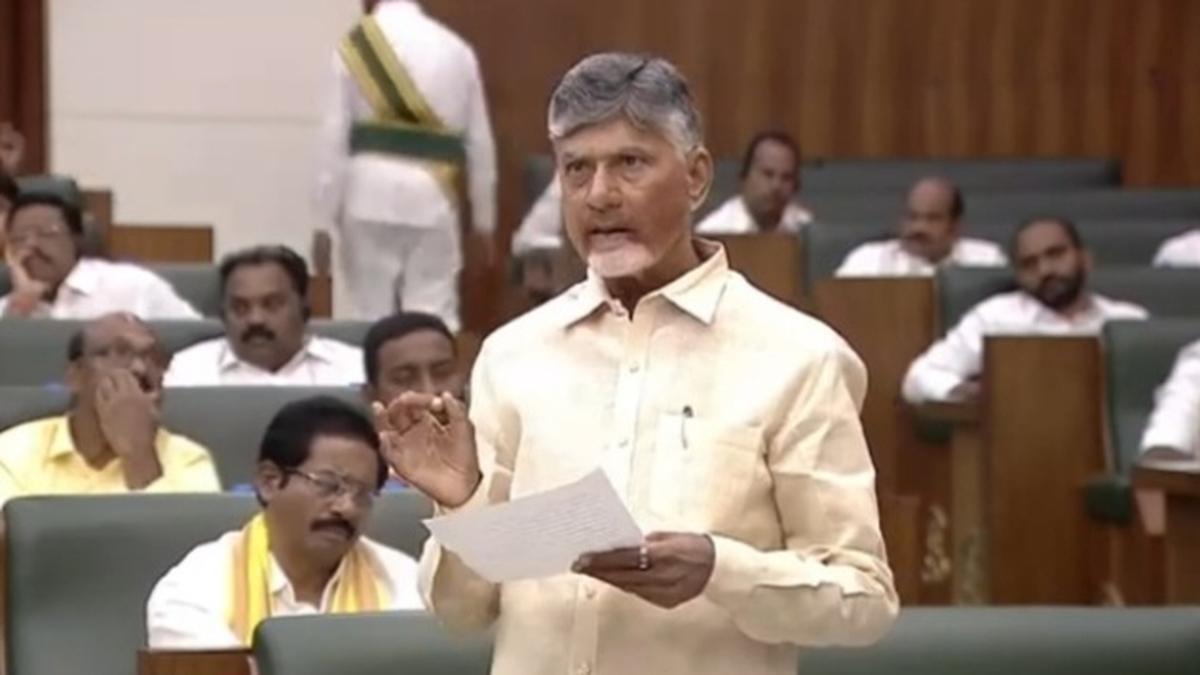
Andhra Pradesh Legislative Assembly passes seven Bills
The Hindu
Andhra Pradesh Assembly passes seven Bills including land grabbing prohibition and infrastructure transparency repeal, aiming for governance and accountability.
The Andhra Pradesh Legislative Assembly passed seven Bills, namely the A.P. Land Grabbing (Prohibition) Bill, 2024; A.P. Municipal Laws (Second Amendment) Bill, 2024; A.P. Goods & Services Tax (Amendment) Bill, 2024; A.P. Value Added Tax (Amendment) Bill, 2024; A.P. Charitable & Hindu Religious Institutions and Endowments (Amendment) Bill, 2024; A.P. Infrastructure (Transparency through Judicial Preview) (Repeal) Bill, 2024; and A.P. Prevention of Bootleggers, Dacoits, Drug Offenders, Goondas, Immoral Traffic Offenders and Land Grabbers (Amendment) Bill, 2024.
The A.P. Land Grabbing (Prohibition) Bill, 2024, laid down stringent norms pertaining to land transactions, keeping in view the fallout of the A.P. Land Titling Act of 2022 (APLTA), which Chief Minister N. Chandrababu Naidu called a whimsical piece of legislation brought by the YSR Congress Party (YSRCP) to allegedly help the land grabbers usurp lands belonging to the common people and political rivals.
“The present Bill is aimed at giving protection to private lands from grabbers,” Mr. Naidu stated.
Amadalavalasa legislator Koona Ravi Kumar said the Bill should duly ensure that government officers acting hand-in-glove with the land grabbers did not escape punishment, and how encroached assigned lands were planned to be dealt under the Bill needed clarification.
The A.P. Charitable & Hindu Religious Institutions and Endowments (Amendment) Bill, 2024, was intended to accommodate one person each from the Brahmin and Nayee Brahmin communities in the trust boards of temples.
There was a suggestion that the government should consider giving representation to a person from the Viswa Brahmin community also.
The A.P. Infrastructure (Transparency through Judicial Preview) (Repeal) Bill, 2024, had done away with the A.P. Infrastructure (Transparency through Judicial Preview) Act of 2019, which was meant to reduce irregularities in the award of government contracts, by submitting infrastructure tenders costing more than ₹100 crore to the A.P. Judicial Preview Committee, but had purportedly failed to achieve the purpose, and its implementation was doubtful.

There is a really big open question about whether Gen-Z is signing up to teach. What I hear from people all over the world is that this is one of our most central challenges. We are working across the Teach For All (TFA) network to recruit people aggressively to commit two years to teach in the communities where they are needed because we have seen that those two years of commitment is transformational for students who are in classrooms and for the teachers themselves because what you do shapes who you are.










